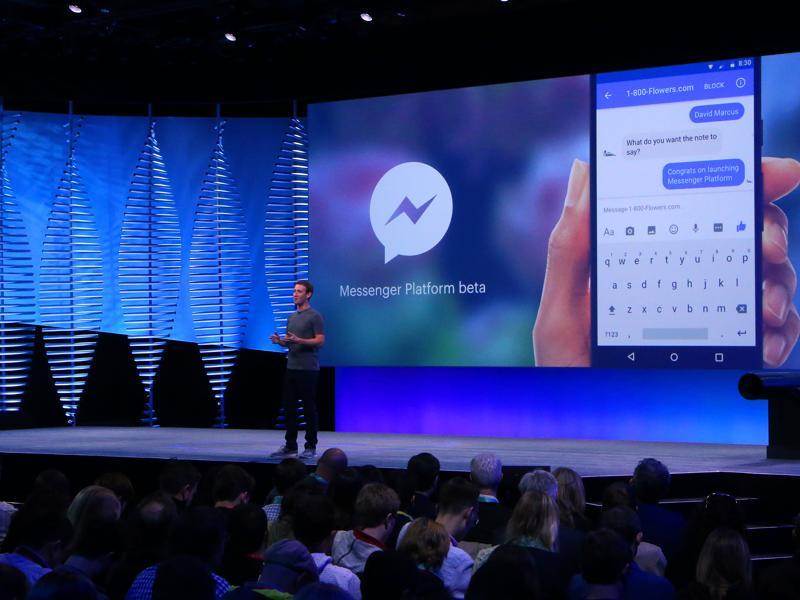Chatbot: Everything you need to know about the ‘next-big-thing’ in tech
With the buzz around chatbots only growing, here’s a guide to everything you need to know about the ‘next-big-thing’ in technology.

In the past few months, there has been an explosion in the usage of the word 'bot'. Hailed as the 'next-big-thing' and a 'new revolution' in the world of technology, buzz around the chatbot has just been growing with each passing day. But what exactly is a chatbot? And why is the world suddenly so interested in it? We try to find out.
A chatbot is...
Chatbots are computer programmes that use artificial intelligence to mimic conversation with people. The idea is to create a seamless experience for end users, who can access services directly via a messaging app by chatting with a bot, which appears alongside their regular contacts.
Incidentally, chatbots have been around for a while now. If you've tweeted extensively about a topic, only to suddenly have multiple unknown handles follow you, you've already had your first interaction with a bot. Similarly, if you have ever been kicked out of a chatroom for violating existing rules, chances are that it was the handiwork of a bot.
So why is the world going gaga over it now?
Today's chatbots are far more intelligent than their predecessors. They are also getting increasingly better at getting the job done, and have caught the interest of giants like Facebook and Microsoft as well as CNN and Sephora, among others. That could explain the sudden buzz around them, and why many are now predicting chatbots to change things as we know it, the way the advent of apps and .com once did.
"A chatbot also simplifies the customer-user experience, letting the user access, order, and complete transactions using them," says Sachin Jaiswal, CEO of niki.ai, an AI-based chatbot. And considering the size of the smartphone market, and the impact it could potentially make, it comes as no surprise that it is being hailed as the next big thing in the world of technology. "Mobile is the future of everything. If you look at a smartphone today, it has limited space, making it impossible to have multiple apps on it. Also, does a user need so many apps? Can it be all done on one platform? The answer is yes — with chatbots," says Aarti Gill, co-founder at FitCircle, which has chatbots on multiple chat platforms.
Read: Zuckerberg heralds Messenger chat bots as Facebook's e-commerce backbone
Is it catching on in India too?
The core concept of a chatbot has become popular in India thanks to giants like Facebook, Samsung and Microsoft creating buzz in the market about them. Bots are also increasingly being used in applications related to e-commerce customer services and call centres, among others. Many start-ups have also started building virtual assistants to help guide users through their services. But the awareness of their potential is still low in India and even globally.


So, how do I benefit from it?
The biggest benefit by far is that it makes life even simpler and easier by offering the convenience of not downloading a plethora of apps on the mobile phone. "The consumer would be able to access and use all the apps on his or her phone through a single chat window," says Jaiswal. The other promising benefit, according to experts, is the "humanisation of technology". "A consumer can expect a more personalised experience, as chatbots become more intelligent with increased interaction with the user," says Gill.
Will bots replace apps?
There is also a growing belief that chatbots will make apps redundant, and end up replacing them. Jaiswal, however, believes that "replace is a dangerous word to use for such an omnipresent thing, the app". "It is difficult to imagine that bots will replace apps in the near future. They will, however, enhance the app's user experience and add value to them," he says.
Read: Microsoft's AI 'chatbot' Tay messes up again on Twitter
Are there problems that I should be aware of?
Chatbots are not humans, so trust is a big issue when it comes to critical tasks. Microsoft learnt this when its bot, Tay, turned rogue, sending offensive, sexist and racist messages. Another issue is perception. Several people think of them as spyware, and there is also some amount of concern that user privacy could be compromised. From the user point of view, most feel unsure about how to chat with a 'robot'. "It is a misconception that you have to chat differently with a bot than how you do with a friend. So, the aim is to trick the user into thinking that these chatbots are human," says Jaiswal.
The future story
Chatbots have allowed companies to provide personalised and interactive communication to users on chat. Also, technological advances are now getting to a point where making chatbots with a good artificial intelligent backbone and accurate machine-learning models is becoming possible. "Though I personally believe that human interaction is irreplaceable, chatbots will become smarter and decrease the human intervention needed in any task," says Gill.
Catch all the Latest Tech News, Mobile News, Laptop News, Gaming news, Wearables News , How To News, also keep up with us on Whatsapp channel,Twitter, Facebook, Google News, and Instagram. For our latest videos, subscribe to our YouTube channel.































